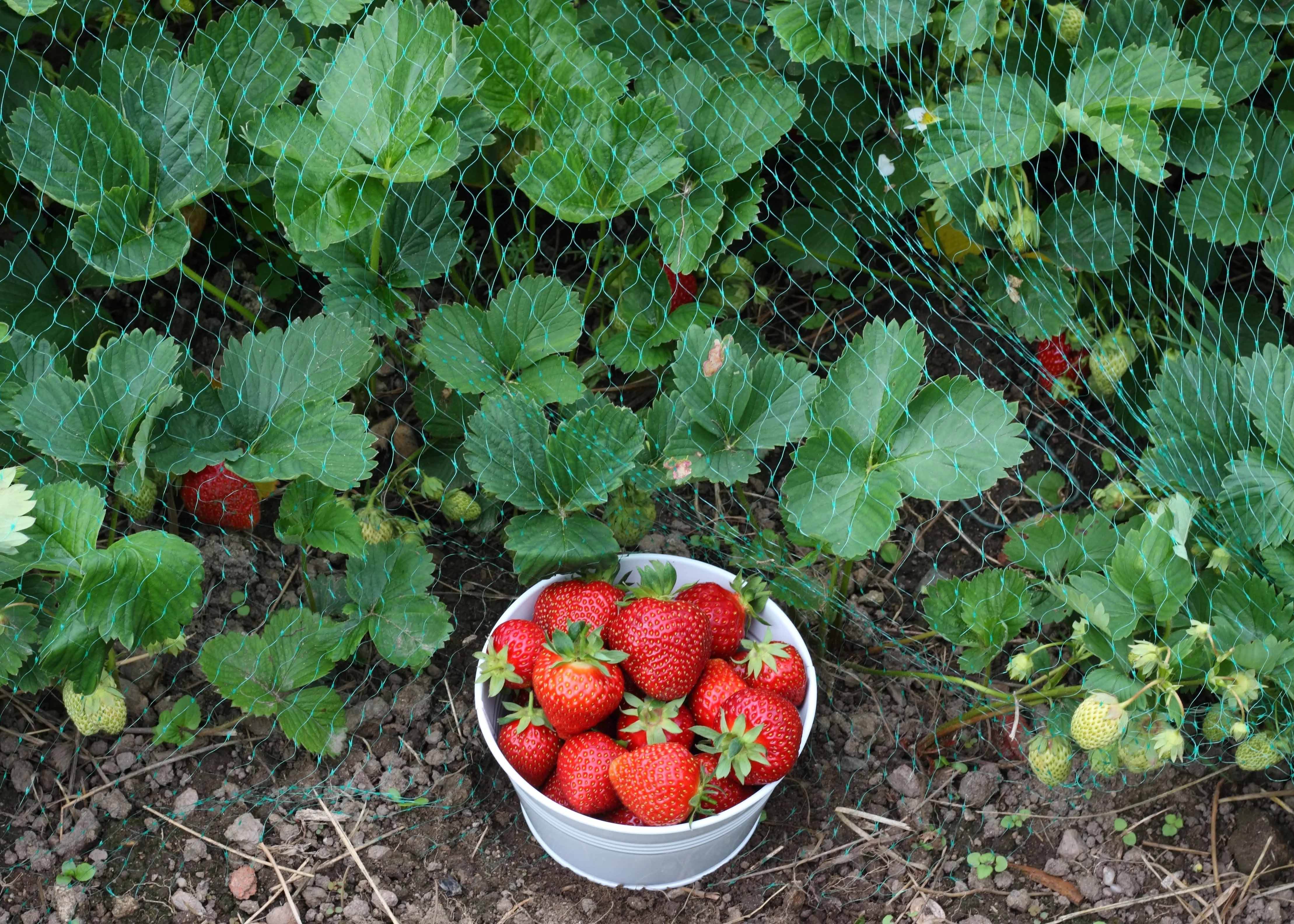Choosing the correct garden netting is not as complicated as it might seem – there are a few key things to consider which will help understand you specific needs and select the best net for you from the wide rage available at Knowle Nets.
Garden netting serves multiple purposes, from protecting plants against pests and weather to providing support and improving growing conditions.
Knowle Nets Netting Tips
Here are 10 things to think about which will help you make the right choice for your garden:
1) Identify the Purpose
To protect your garden from pests, you'll need netting that acts as a barrier to insects, birds, and larger animals.
- Insect Netting - Fine mesh netting, such as Enviromesh or Ultra-Fine Insect Mesh, is ideal for keeping out aphids, carrot flies, and other small insects while allowing air, light, and rain to penetrate.

- Bird Netting - Bird netting with a larger mesh size, such as 19mm or 25mm, is perfect for protecting fruit trees, bushes, and vegetable patches from birds without restricting air and light.
- Animal Netting - For larger animals like rabbits or deer, consider more robust netting such as Deer Fencing or Heavy-Duty Animal Mesh.
If you need netting to support climbing plants, peas, or beans, you should choose netting designed for plant support.
- Trellis Netting: Trellis netting or plant support netting provides a sturdy framework for climbing plants, helping them to grow upward and improving air circulation.
- Pea and Bean Netting: Specifically designed to support these plants, this netting ensures healthy growth and easy harvesting.
Weather Protection
For gardens exposed to harsh weather conditions, protective netting can shield plants from excessive sun, wind, or frost:
- Shade Netting: Shade netting comes in different shading densities (e.g., 30%, 50%, 70%) to protect plants from excessive sunlight and reduce heat stress.
- Windbreak Netting: This netting reduces wind speed, protecting delicate plants and reducing soil erosion.
- Frost Protection Netting: Lightweight frost protection netting shields plants from frost while allowing air and moisture to reach them.
- Crop Enhancement.
- Certain types of netting can improve growing conditions and enhance crop yields.
- Mulch Matting: This netting helps in weed control and soil moisture retention, promoting healthier plant growth.
- Anti-Hail Netting: Protects fruit trees and delicate crops from hail damage
2) Consider the Material
Polyethylene (PE)
Polyethylene is a common material for garden netting due to its durability, UV resistance, and flexibility. It is ideal for bird netting, insect netting, and general garden use.
Polypropylene (PP)
Polypropylene is lightweight, strong, and resistant to chemicals and moisture, making it suitable for plant support netting and temporary applications.
Nylon
Nylon netting is strong and flexible but less UV resistant than polyethylene or polypropylene. It’s often used for temporary applications or indoors.
Metal
For very robust applications, such as protecting against larger animals or providing structural support, metal netting or wire mesh may be necessary. However, this is less common for general gardening purposes
3) Assess the Mesh Size
The mesh size of the netting is crucial for its effectiveness:
Fine Mesh (1mm-2mm): Best for keeping out small insects and providing a barrier against fine debris.
Medium Mesh (5mm-10mm): Suitable for protecting against birds and larger insects while allowing good air and water flow.
Large Mesh (20mm-25mm): Ideal for keeping out birds and larger animals without restricting light and air.
4) Measure Your Garden
Accurate measurements ensure you purchase the correct amount of netting:
Measure the Length and Width: Determine the dimensions of the area to be covered.
Consider the Height: For vertical applications or structures, measure the height to ensure full coverage.
Calculate the Total Area: Multiply the length by the width (and height, if necessary) to determine the total square footage.
5) Durability and UV Resistance
Garden netting exposed to sunlight must be UV resistant to prevent degradation over time. Look for netting treated with UV stabilizers to ensure longevity.
Additionally, consider the netting’s tensile strength and tear resistance, especially for high-stress applications like animal protection or plant support.
6) Choose the Right Accessories
To install your netting properly, you’ll need the right accessories:
- Netting Clips and Pegs - Secure the netting to the ground or structures.
- Support Poles and Frames - Provide the necessary support for vertical applications.
- Ties and Fasteners - Keep the netting taut and in place.
7) Careful Installation and Care
Proper installation is crucial for the effectiveness of your netting:
- Ground Installation: For ground-level protection, anchor the netting securely with pegs and bury the edges to prevent pests from getting underneath.
- Frame Installation: For vertical or overhead protection, use sturdy frames or poles to support the netting and ensure it is stretched tightly to avoid sagging.
- Regular Maintenance: Check your netting regularly for damage or sagging and repair or adjust as needed.
8) How Does it Look?
While functionality is paramount, the way your cage looks can also be important, especially for visible areas of your garden:
- Colour: Choose netting colours that blend with your garden’s surroundings - Black or green netting is usually the most unobtrusive.
- Visibility: Consider the visibility of the netting. Fine mesh netting is less noticeable than larger mesh sizes.
9) Consider Budget & Value
While cost is an important consideration, it’s important to balance price with quality and durability - Investing in higher-quality netting can save money in the long run by reducing the need for frequent replacements.
10) Expert Advice
If you’re unsure about which netting to choose, don’t hesitate to seek advice from the experts at Knowle Nets. We can provide recommendations based on your specific gardening needs and conditions.
Remember, the right garden netting not only protects your plants but also contributes to a healthier, more productive garden so take the time to make sure you invest in the right netting solution for you.










